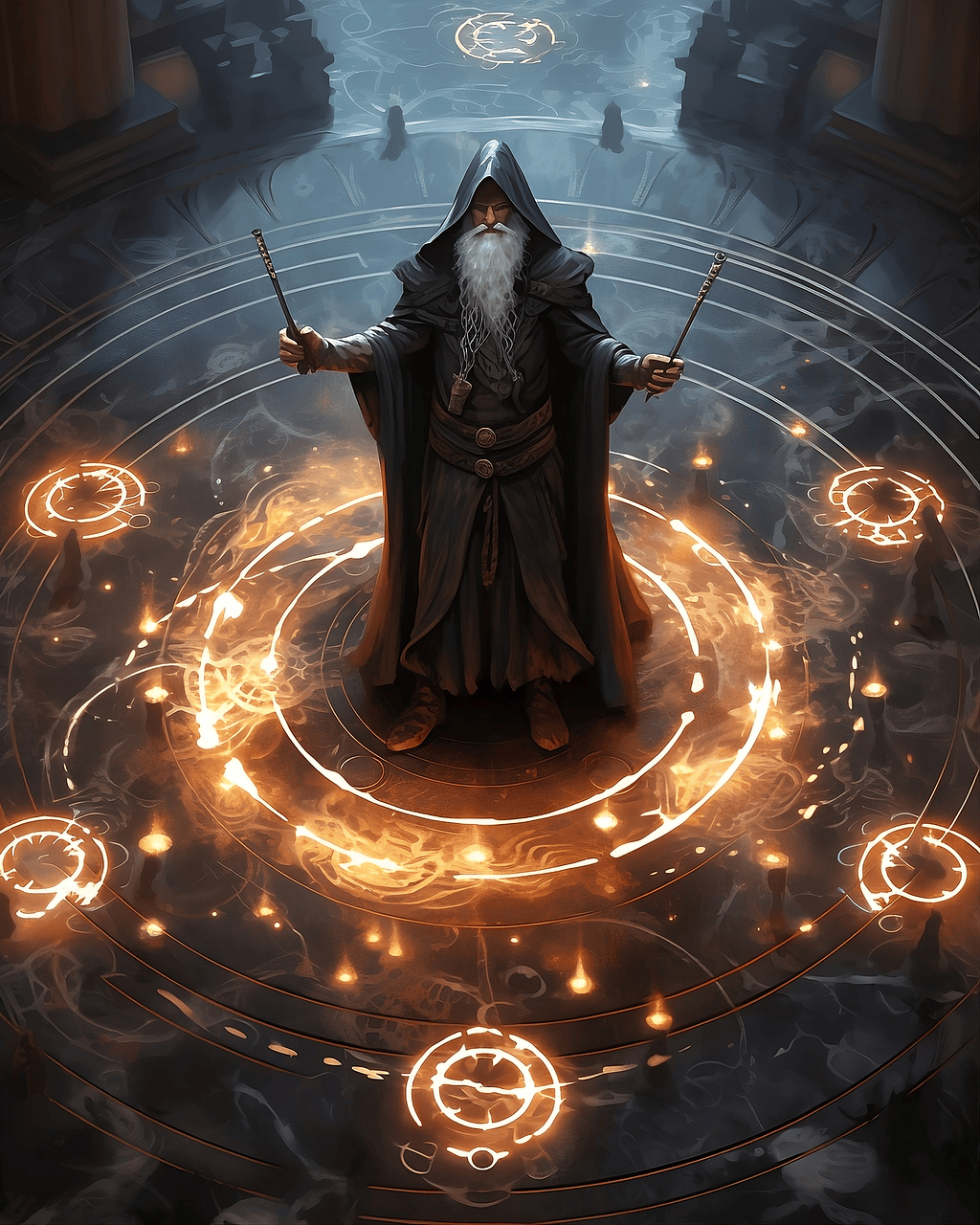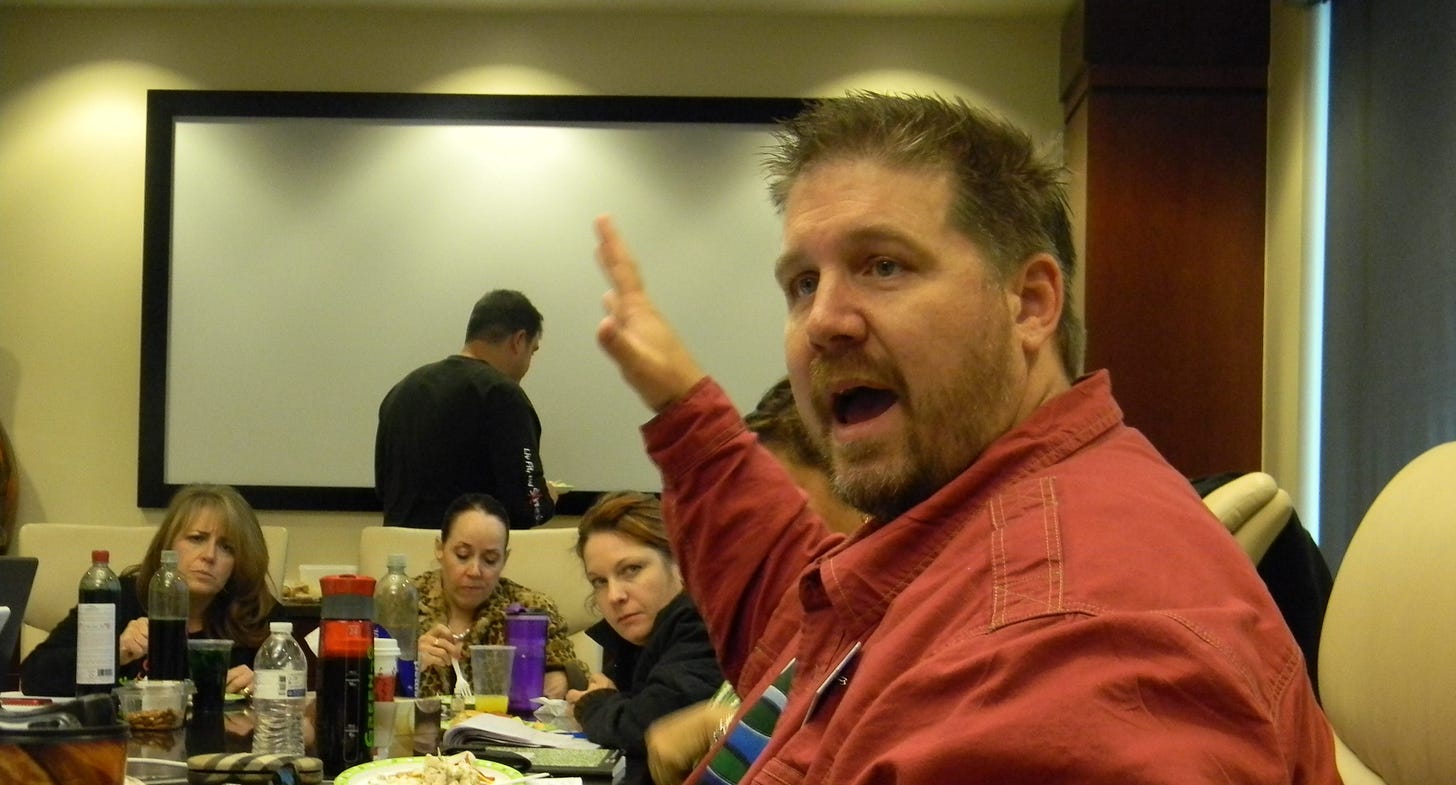Ink & Purpose: ✨ The Stories We Tell Aren’t Harmless. Sometimes, They’re Everything.
One Story. One Life. One Chance.
Previously in Ink & Purpose…
In The Call of Awe, we saw how moments of wonder expand our hearts, awaken empathy, and plant the seeds of heroic action.
Now, we bring it all home—with one final truth: your story matters. The tale you tell—shared at the right moment—might be the very lifeline someone else is desperately waiting for.
📖 The Story That Reached Me When Nothing Else Could
I’ve heard people say fiction isn’t real.
That it’s an escape.
A distraction.
A luxury for those with time to waste.
But those people have never had fiction save their mind.
I have.
There was a time in my life where everything inside felt like a war zone.
Not because of what happened in my home—but what happened outside of it.
Abuse.
Pain.
A world that demanded I smile while it quietly crushed me.
I was young. Too young to have words for what was happening.
And like so many kids in pain—I didn’t reach for a person.
I reached for a story.
It wasn’t some grand, literary tome.
It was Willy Wonka and the Chocolate Factory.
Gene Wilder. That haunting smile. That glimmer of something possible.
A man who lived in wonder.
Who believed in imagination.
Who whispered that the impossible was just another word for “not yet.”
I watched it over and over again—not for the candy.
Not even for Charlie.
But because somewhere in that world, I could breathe.
It wasn’t a story about escape.
It was a story about transformation.
About a boy who stayed kind in a cruel world… and was rewarded for it.
And it reached me.
Right when I needed it most.
So let me ask you this:
What if a story—just one—could pull someone back from the edge?
What if your favorite book, shared at the right time, became someone else’s lifeline?
Wouldn’t that make fiction sacred?
Wouldn’t that make sharing it… an act of heroism?
📚 Fiction as Lifeline, Not Luxury
In the midst of turmoil, when words fail and the world feels overwhelming, stories have a unique power to reach us. They are not mere escapes but sanctuaries—places where we find solace, understanding, and the strength to carry on.
Stories Across Boundaries
Throughout history, stories have been shared in the most challenging circumstances:
Prisoners have exchanged tales to maintain their humanity.
Patients in hospital beds have found comfort in narratives that mirror their struggles.
Refugees have carried stories across borders, preserving their culture and hope.
These narratives serve as bridges, connecting individuals to a sense of identity and community, even in isolation.
🧠 The Science of Healing Through Stories
Stories don’t just entertain. They heal.
This isn’t sentiment—it’s science. Researchers across psychology, psychiatry, education, and literature have studied how fiction functions as a powerful tool for emotional regulation, trauma recovery, and personal transformation.
Let’s break it down:
📘 1. Bibliotherapy Reduces Depression and Anxiety
Bibliotherapy—the guided use of reading materials for therapeutic benefit—has been clinically shown to reduce symptoms of depression and anxiety, especially in adolescents and adults struggling with emotional regulation.
In a systematic review and meta-analysis published in Clinical Psychology Review (2017), researchers found that bibliotherapy produced long-term improvement in adults with mild to moderate depression. It was not only effective but more accessible and cost-efficient than many traditional interventions.
📖 Source:
https://pubmed.ncbi.nlm.nih.gov/28993103/
🧒 2. Bibliotherapy for Children and Teens with Trauma
For youth dealing with grief, abuse, or emotional neglect, fiction can provide what clinical environments sometimes can’t: safety, connection, and language for pain.
A 2020 study in The Recreational Journal examined the use of bibliotherapy for trauma-exposed youth and concluded that guided reading programs helped children externalize their feelings, reduce anxiety, and build emotional literacy.
📖 Source:
https://js.sagamorepub.com/trj/article/view/7652/6022
Another review in Children and Youth Services Review emphasized bibliotherapy's role in addressing behavioral and emotional difficulties, particularly among children in foster care or undergoing therapy.
📖 Source:
https://www.sciencedirect.com/science/article/abs/pii/S0190740917303226
🪞 3. Fiction as a Mirror: Self-Insight and Empathy
Reading fiction isn’t passive. Neurologically, it activates regions of the brain associated with theory of mind, moral reasoning, and empathy. As readers immerse in a character’s struggles, they begin rehearsing emotional experiences themselves.
Psychologist Keith Oatley explains this effect as “the simulation of social worlds”—where fiction becomes a mental lab for readers to process their own emotions and better understand others.
A 2021 article on Verywell Mind outlines how bibliotherapy fosters self-reflection, emotional identification, and behavioral insight, particularly when paired with discussion or journaling.
📖 Source:
https://www.verywellmind.com/what-is-bibliotherapy-4687157
🔧 Fiction Builds Emotional Scaffolding
It offers structure for chaotic emotions
It allows readers to practice resilience safely
It helps people rewrite their internal narratives with hope, agency, and possibility
When life feels too big to face, fiction doesn’t replace reality.
It prepares us to return to it with more strength.
🧵 A Lifeline in the Form of a Story
We don’t always realize how close someone is to the edge…
until a story pulls them back.
Shared at the right time, fiction doesn’t just entertain.
It interrupts despair.
It restores breath.
It offers another option when all other doors seem shut.
Here’s what that looks like:
🧑🎓 A Teenager Battling Depression
They sit in the back of the classroom, hoodie up, eyes down.
Everyone sees the silence, but no one sees the storm.
Then—somehow, a book finds them.
Not prescribed. Not pushed. Just… handed.
It’s a story about a kid who doesn’t fit in.
Who drowns in self-doubt.
Who wakes up each day not knowing if they’ll make it through.
And then slowly—imperfectly—begins to crawl out of it.
They’re not cured.
They’re not fixed.
But they keep going.
That teen closes the book with tears in their eyes—not because the story was easy,
but because it said:
“You’re not the only one. And you’re not done yet.”
That book becomes a thread.
A lifeline.
A reason to stay one more day.
🕯 A Grieving Parent Finds Their Pain in Print
They lost someone they loved—and the world moved on.
People stop asking. The cards stop coming. The silence grows louder.
Then one day, they pick up a memoir.
Not looking for healing—just distraction.
But in those pages… someone names what they couldn’t.
The ache. The guilt. The disorientation of waking up in a world that feels wrong without their child.
Suddenly, they feel seen.
It doesn’t erase the grief.
But it makes it shareable.
Livable.
And in that sacred recognition, something shifts.
Not away from the pain—but toward the possibility of carrying it with dignity.
🛡 A Trauma Survivor Sees Resilience on the Page
They thought they were broken.
They thought what happened to them defined who they were.
Then they read a novel about a survivor—fictional, yes, but real in every emotional line.
This character:
Fights back.
Finds her voice.
Refuses to let the darkness steal everything.
Fails, but keeps going anyway.
And for the first time, the reader asks:
“What if that could be me?”
That character doesn’t become their savior.
But they become a mirror.
And in that reflection, a new question begins to form:
“What would it look like to heal?”
That’s where hope is born.
These aren’t dramatic plot twists.
They’re human ones.
Moments where fiction opens a window—just wide enough to let in a little air, a little light, a little belief that life can still hold meaning.
These are not just stories.
They are lifelines.
Threads that tether a person back to hope, understanding, and the courage to try again.
🌱 The Stories We Share Are Seeds
Stories aren’t always loud.
Sometimes, they’re slipped quietly into someone’s life like a note in a pocket.
A book lent.
A chapter read aloud.
A link texted with: “This made me think of you.”
And the person on the other end?
They may nod.
Thank you.
Put it aside for later.
But sometimes…
That story sits in them.
Roots down.
And blooms long after you’ve forgotten you even shared it.
🪴 Every Story Is a Seed
You may never see what it grows into.
But that doesn’t mean it didn’t matter.
Because stories don’t always change people instantly.
Sometimes they sit in the soul for weeks, years, even decades—
until the moment someone needs it most.
That’s how stories work.
They’re not weapons.
They’re seeds.
I’ve seen it with my own work.
There was a boy once—twelve, maybe thirteen.
He didn’t speak much.
His mom handed him Wanted Hero with a kind of desperate hope in her eyes.
Weeks later, he came back with a question that stopped me cold:
“Did Wendell get stronger because of the pain—or in spite of it?”
He wasn’t asking about the character.
He was asking about himself.
That question?
It was a seed.
And something in him started growing that day.
Another young woman reached out after reading Bloodsticks.
She told me that seeing a character like Riven—one who bore the weight of anger, failure, and deep loneliness—made her realize she wasn’t alone in her own struggle.
“I didn’t think I could ever like a character who was so broken,” she wrote.
“But I loved him. And now I’m wondering if I could love me, too.”
Seed.
Someone once messaged me after reading Demoni Vankil, saying,
“I’ve never seen a fantasy world where kindness felt like a weapon. I needed that.”
Another wrote:
“This story didn’t change everything.
But it helped me keep going when nothing else was working.”
Seed.
Seed.
Seed.
We don’t always see the fruit.
We don’t always know whose life was changed by a book we handed off, a story we wrote, a scene we let bleed onto the page.
But that doesn’t mean it didn’t matter.
You are planting bravery.
You are planting healing.
You are planting light in someone’s darkest soil.
And someday—maybe far from your eyes—
that story will bloom.
And the person who needed it most…
will carry it forward.
In their voice.
In their strength.
In their story.
Because stories don’t end.
They echo.
🕯 Your Story Has Weight—Even If You Don’t Know It Yet
One of the biggest lies we believe is that our stories don’t matter.
“It’s not dramatic enough.”
“It’s not tragic enough.”
“No one would care.”
And so we stay silent.
We swallow the chapters that made us.
We tuck away the turning points.
We convince ourselves that stories only count if they’re polished, epic, or published.
But here’s the truth:
You don’t have to be loud to be life-saving.
You don’t have to be perfect to be powerful.
Some of the most meaningful stories I’ve ever heard came in whispers.
A barista who shared a dog-eared book with a teen who always came in alone.
A mother who wrote down bedtime stories just for her children—and years later, those same stories helped her grandkids through grief.
A young man who posted a short comic online and never knew it helped someone get through the anniversary of a loss.
Not one of them thought they were doing something heroic.
But they were.
They planted hope.
They gave someone a mirror.
They reminded someone they weren’t alone.
Think about this:
What if your story—your struggle, your survival, your strange little fantasy tale—
is the exact thing someone out there is waiting to hear?
Not because it solves everything.
But because it tells them:
“You’re not crazy. You’re not broken. And you’re not the only one.”
You don’t have to write a novel.
You don’t have to post your trauma on the internet.
But maybe you write a letter.
Maybe you share a book that meant something to you.
Maybe you write one blog post, or send one chapter to one friend, or hand your favorite story to a kid who’s just starting to doubt the world.
That’s not nothing.
That’s everything.
Because the people who are drowning rarely shout.
They don’t ask for a lifeline.
They wait—hoping someone throws one anyway.
Your story might be the rope they reach for.
So speak it.
Write it.
Pass it forward.Don’t wait until it’s perfect.
Don’t wait until you feel wise.
Because what you’ve lived… might become what helps someone else survive.
Your story has weight.
And it’s heaviest with purpose when you choose to give it away.
🔚 Final Thoughts – You Carry Fire
We started this journey talking about stories.
About imagination, meaning, and the wonder we thought we’d lost.
But here, at the end of this path, we return to the beginning—with clearer eyes and a fuller heart.
Because fiction isn’t just sacred because it’s written well.
It’s sacred because of what it does.
It comforts.
It confronts.
It cracks open the places we’ve closed off… and whispers, “You are not alone.”
And that’s what I need you to remember now:
You don’t have to change the whole world.
Just change one moment for someone.
One chapter.
One breath.
One sliver of hope when someone’s light is about to go out.
That’s enough.
Because in the dark?
Light travels far.
You may not feel brave.
You may not feel wise.
You may not feel like what you have to say is worthy.
But I promise you:
You carry fire.
And someone, somewhere, is waiting for that warmth.
Maybe your story is the first spark.
Maybe your kindness is the first chapter.
Whatever it is…
Give it.
Not because you’re trying to be a hero.
But because you remember what it felt like
when a story found you—
right when you needed it most.
✅ Call to Action: Pass the Flame
🔥 Share this with someone who’s been holding their story in silence.
Tell them: It matters more than they know.
💬 Let’s talk in the comments:
What’s a story that reached you in the dark—right when you needed it?
Have you ever shared a book, a letter, or a word that changed someone’s direction?
What’s holding you back from telling your story—and what might happen if you let it out?
📚 Let’s build something together—
A community where stories aren’t just told...
They’re treasured.
They’re trusted.
They’re passed like torches in the night.
And always remember:
You are MORE than you THINK you are.
Jaime Buckley
✍️ Author’s Note from Jaime
If you made it this far… thank you.
Really. Thank you.
This article marks the close of Ink & Purpose—a series that came from the deepest corners of my life, my scars, my stories, and my hope.
If these words meant something to you—if they stirred something inside—then I want you to know: you’re not alone. You’re exactly the kind of person I wrote this for.
And I’d love to hear your story.
I’m building something called the Life of Fiction—a place for writers, readers, teachers, parents, and creators who believe that stories still matter. That fiction is not fluff—it’s lifeblood.
If that sounds like home to you… come find me.
📬 Introduce yourself.
📚 Subscribe to the Life of Fiction newsletter.
🌍 Explore the Master Worldbuilding Course or grab a copy of the Advanced Worldbuilding Journals—they’re tools I created to help writers expand their fictional worlds with depth, heart, and purpose.
Because if this series taught me anything, it’s that the story inside you might be the one someone else is waiting for.
Let’s build it. Together.
And as always—never forget:
You are MORE than you THINK you are.
THANK YOU: For reading why I do what I do.
If you’ve missed the series, here are the Why Fiction Matters links:
🌌 What If Wonder Is the Missing Ingredient in Every Great Story?
✨ The Stories We Tell Aren’t Harmless. Sometimes, They’re Everything.










Some have said "we're made of stars". Sure, ok.
But really? On a deeper level? We... all of us... are made of Stories and we are all the Storytellers. If anyone is willing to listen.
What an inspiring post! I don’t know that I have changed anyone’s direction but my own through fiction read and/or fiction shared, but this article makes me want to. Well said!